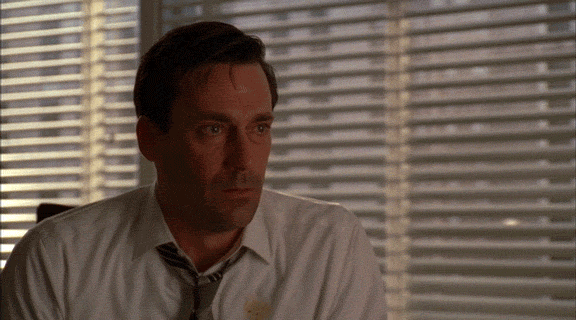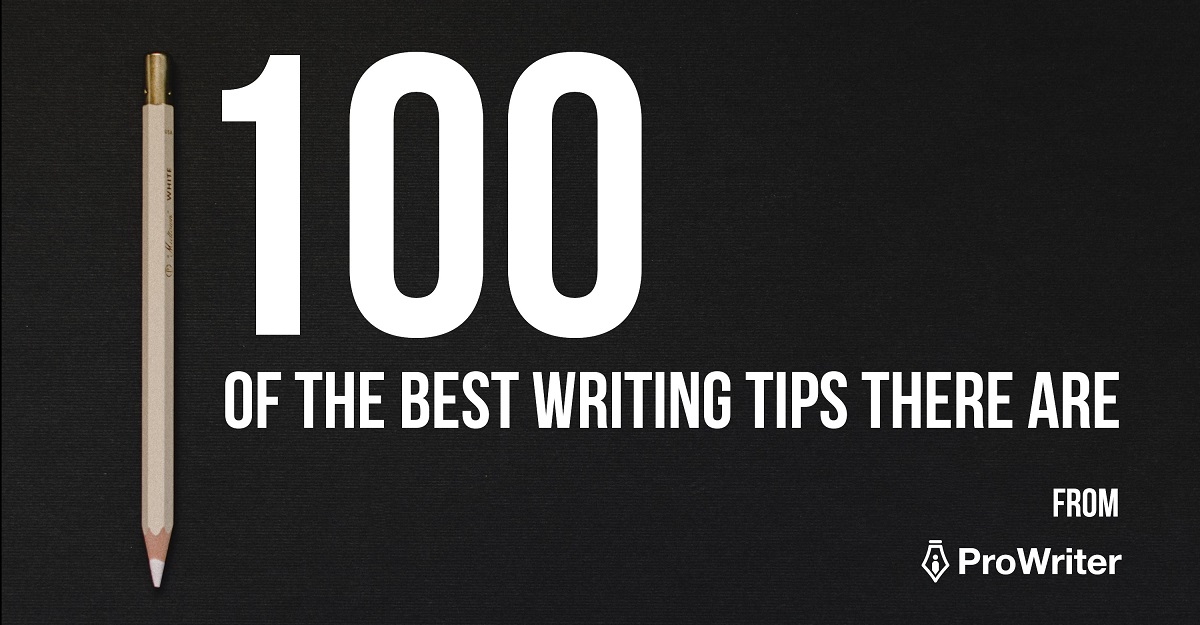There’s a lot of advice floating around blogs and social media about what it takes to be a good writer. But it can be difficult for new writers to figure out what to prioritize. Which tips create a map to success, whatever that means for you?
Our advice? Skip generic advice.
Let’s start from scratch here. What makes a good writer?
Becoming a good writer requires a combination of learning hard skills and becoming more disciplined in your creative habits. Although natural talent and creativity are part of the secret sauce, a lot of promising writers fail to launch because they rely too much on passion or waiting for inspiration and too little on cultivating professional skills.
We’ll get to the skills here shortly, but first, I want to spend some time on the mistakes most writers early in their careers make.
First things first: Avoid these writing mistakes
I want to focus on this first in part because I believe the cliche that everyone has at least one great novel in them.
I also think that the reasons that prevent most people from becoming writers at all are mostly self-inflicted.
Whether you want to write the great American novel, become a successful columnist, or design marketing campaigns that inspire people to take action, the first step is deleting everything pop culture has ever told you about these jobs from your brain.
Successful authors conjure mental images of quiet lives spent in cabins by lakes, or in cottages in English countrysides. Admittedly modest lifestyles, but ones where money isn’t really a worry and most days are spent listlessly drifting between your fireplace-lit reading nook and your typewriter.
The truth is, most authors make about $26 an hour, and their days are mostly comprised of research, fact-checking, follow-ups, and outlines. The workflow more resembles the tedious building of a house than composing a beautiful symphony.

This is “deadline face”
Let’s do columnists. A lot — a lot — of ink has already been spilled by better writers than I about the Carrie Bradshaw myth. TL;DR, a Sex and the City lifestyle is not doable on the average columnist’s salary.
No one is rolling out of bed to write a quick column and then spending the rest of the day at brunch, either. The real-life Carrie Bradshaws of the world grind.

Disappointing, I know
What about creatives at fancy ad agencies? Long gone are the leisurely smoke- and gin-filled meeting rooms of the Mad Men era, if they ever existed as depicted on the popular AMC show.
Ad agencies today are packed with underpaid Millennials working grueling schedules and experience some of the highest burnout and turnover of any industry.

Real employees, most of the time
Sure, all this makes most professional writing jobs sound like they’re human meat grinders. That’s not our intention.
What we’re trying to get across here is that writing, in all of its forms, is a job.
Before we can offer our advice on what’s important to focus on, it’s important to understand the context of where we’re coming from.
To set the stage for becoming a good writer, we have to weed out some of the romanticism most people associate with a career in writing. That will help you focus on what matters early on so you can develop the necessary raw skills and hopefully, ultimately, become the good writer you want to be.
We have to eat our veggies before dessert.
That means worrying a lot less about “developing your voice” (whatever that means), not waiting around for inspiration to kick in, and avoiding the trap of relying on your natural abilities to shine through no matter what.
Your “voice” is going to develop the same way your muscles grow when you exercise. Inspiration isn’t going to show up enough to pay the bills, and when it does, it will hardly ever be on your schedule.
A natural writing talent is an asset — but a professional writer who has taken the time to develop the right skills and disciplines will run laps around a writer with no skills and no discipline. They will be more successful even if they don’t possess as much raw talent.
If you’ve made it this far, that means you’re serious about learning what it takes to be a good writer. That’s great! Here are 5 foundational things to focus on.
5 tips to turn beginners into good writers
So you’ve lost your romantic notions about what makes a good writer. Now what?
Hopefully, two things have happened. One, you understand that the path to becoming a successful writer (whatever that means to you) is hard work.
But…
Two, hopefully you realize that it’s actually doable.
If you thought that success was a matter of waiting to be discovered and only a fortunate few make it into that club, this should come as a relief.
I’m sure you’ve heard about how JK Rowling was sent no less than 12 rejection letters from publishers before her first book was published.

Ouch.
Try to actually picture that. Try hanging your hopes on one publisher. Then two. Then three. All the way up to 12. Imagine hearing “no” every day for a year.
Most of us would have given up, right?
All that’s standing between you and your version of success as a writer is your own work ethic. Don’t wait around to be discovered (it doesn’t happen), and don’t let “no” discourage you (you’ll hear it more than you hear “yes”).
If you’re just starting out, here’s our advice. These tips are practical, but we also wanted them to be as specific as possible for people who want to become good writers that can make a living.
We skipped stuff like “read a lot” or “write with passion.” Good advice, but I think it distracts from some of the practical steps writers need to take at the start of their careers to develop the skills they need to be truly competitive.
I’d love to hear your feedback. If these tips helped you, please give me a shout on LinkedIn. Or, feel free to tell me where you think I went wrong here. I’m a big boy, I can handle it.
No. 1 — Learn the hard skills for whatever you want to write
I’ll keep saying it until someone proves me wrong — natural talent is not enough.
Whatever you want to write, whether it’s a press release, an SEO-optimized blog post, a graphic novel, a clickbait listicle, the great American novel, or even a tweet, everything has a format and a structure.
This is why “just sit down and write” isn’t always the best advice. It implies that you already have everything you need in your toolkit, and can rely on your creativity and discipline to find success.
Natural talent is not enough. Learn the hard skills and structures for whatever it is you want to write. #writertip Click To TweetCreativity and discipline are important, but they’re not the whole pie. People have already figured this stuff out; you can stand on the shoulders of giants here.
There’s no need to rely on trial and error through your screenplay. It’ll be a mess.
Whatever you want to write, if you want to be a good writer, learn the hard stuff — the structure, what works, what doesn’t. Once you put in your time, you can get more creative.
No. 2 — If you’re a writer, you’re a business. So learn business.
Being a good writer is about so much more than just good writing, though.
I preferred my creative writing courses to Intro to Business back in college too, but I’ll be the first to admit I wish I’d paid more attention to the latter.
Whatever kind of writing you do, if there’s going to be money involved, you’re going to need to learn some basic business skills on the fly.
Whatever kind of writing you do, you're going to need to learn some basic business skills as well. #writertip Click To TweetDon’t diminish or skip this — everything from contract negotiation to figuring out how to pay your taxes will become part of your routine. You might need to build a website, or a portfolio of your work to attract clients. You’ll need to find creative ways to market yourself.
You’ll be the talent, the manager, the publicist, and the accounting department all in one.
No. 3 — Don’t sacrifice readability to style
A writer once asked me to review a creative writing sample for a YA fantasy novel she was working on. After reading a few paragraphs I said “you have some interesting ideas here, but it’s really dense, there are a lot of words I don’t know, and I don’t really know who or what this story is about.”
She replied, “Yeah, it’s supposed to be impenetrable.” So I handed it back and said, “Well, then it’s probably not supposed to be YA.”
It’s not just a problem for aspiring novelists. I run into a lot of writers who try to impress with a big, sweeping vocabulary and complex sentences, even in relatively straightforward “how to” articles.
But unless there’s a justifiable reason for it, you should write everything for a general audience. I’m sure you’ve heard that familiar cliche about The New York Times being written at a 5th-grade reading level (it’s actually 10th grade, but who’s counting).
You should write everything for a general audience. #writertip Click To TweetYou definitely have your own stylistic quirks, and that’s okay. Maybe you’re verby, or like using lots of metaphors. I’m not saying you should water your writing down to some arbitrary standard of mediocre prose.
Just water down you to a level where everyone can understand what you’re saying.
Oh, and “it’s just my style” is not a justifiable reason.
No. 4 — Reverse engineer your career path from your ultimate goal
In addition to writing skills, business skills, and readable copy, you need a goal.
Start big.
But then, break the goal down into component parts.
What steps do you need to take to get there? What skills do you need to develop, what city do you need to relocate to, who do you need to make connections with?
To be a good writer, you need a goal. Start big. #writertip Click To TweetIs there someone who has achieved what you want? What did they do to get there? What have they said publicly about the challenges they faced, and what can you learn about that?
Follow them on social media. Can you learn anything about their habits or attitudes or work ethic from the content they post? (Hint: writers never stop writing, so the answer to this is yes, yes you can).
No. 5 — Make it a habit
I promised we’d avoid generic advice, but bear with me on this one.
Whenever you see advice like “just sit down and write!” whoever’s saying it isn’t telling you the whole truth.
When I tell writers they need to make writing a habit, they roll their eyes and smile. “I know, I know,” they say as though I’m telling them to schedule a dentist appointment.
But what if that advice sounded more like a warning? What if instead of a gentle reminder to be proactive with your health, it was a dire plea to change a lifestyle habit that is already destroying your health?
I think this is the mindset aspiring writers need to adopt. Because nobody is waiting for you to finish your book, your graphic novel, or your column. If it never comes out, nobody notices. Nobody knows what they lost because they don’t know what they could have had.
Except you.
The only person who can help you find success as a good writer is you.
The only person standing in your way? Same person.
“Make writing a habit” is an implicit admission that we are our own worst enemy, creatively speaking. Don’t let the enemy win!
More resources for writers
I hope you found this advice helpful.
If you’re looking for more resources for aspiring writers, or paying gigs to help kickstart a creative career, subscribe to our newsletter.
You can also set up a free writing portfolio here.






